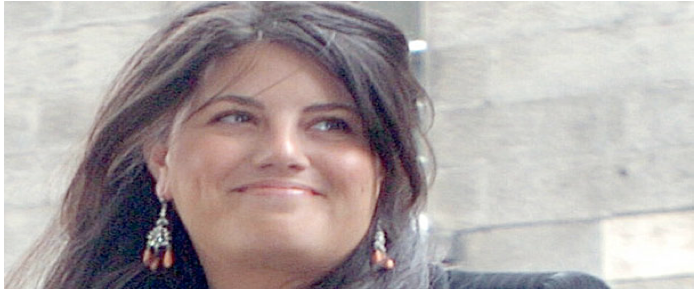WHO WE ARE-Monica Lewinsky must be satisfied to learn that with a few stylish photographs and a few innocuous paragraphs, she can still discombobulate Maureen Dowd, Lynne Cheney and a swarm of demented figures in American politics and media. Few could resist the chance to reminisce about the tapes, the blue dress, the cigars, the salacious Starr Report and the drama of impeachment.
But this familiar frenzy resembled nostalgia more than news. To make Lewinsky’s sudden reappearance seem fresh and startling, everyone pretended she had never spoken out during all these 15 years, despite her many television and print interviews and her 1999 book with Andrew Morton, in which she has expressed most of the meditations reiterated in the pages of Vanity Fair.
Explaining herself, Lewinsky offers some reflections on the death of Tyler Clementi, the bullied gay Rutgers student who committed suicide, and on the dark culture of Internet bullying. She wants to do something useful. She rejects victimhood, declaring that her relationship with Bill Clinton was “consensual,” although regrettable—all of which makes her far less useful as a political prop for the likes of Sen. Rand Paul.
Yet notwithstanding the hysteria she provokes in Joe Scarborough and other outraged luminaries, the story of Lewinsky has nothing to do with illicit sex—and everything to do with the nihilist temperament of the modern Republican Party. If we are heading back toward the bad old days of scandal and impeachment, as now seems inevitable, then it is vital to put our returned heroine in her true context.
Yes, our heroine—and that is not meant sardonically. For at the moment of crisis, when Linda Tripp treacherously exposed her, Lewinsky behaved more courageously and nobly than anyone could reasonably have expected.
By that time, after nearly five years investigating Whitewater, Travelgate, Troopergate and all the myriad pseudo-scandals, the Office of the Independent Counsel was utterly unable to make a serious case against either Bill or Hillary Clinton. Handpicked to pursue the Clintons by conservative judges, who had overlooked his lack of prosecutorial experience in favor of his ambition and ideological zeal, Kenneth Starr found himself on the verge of humiliating failure. Despite spending tens of millions of dollars, his staff of lawyers, investigators and FBI agents had nothing—until a group of right-wing lawyers plotting against the White House served up Tripp, her secret tapes and her hapless, love-struck young “friend,” Monica.
In the face of Tripp’s perfidy and the bullying of Starr’s prosecutors, who threatened her and her family with long prison sentences, Lewinsky stood fast. She asked to speak with a lawyer and with her mother. She wouldn’t wear a body wire into the Oval Office, as they demanded, to tape an incriminating conversation with the president. And she likewise refused to sign any statement that implicated Clinton in crimes of obstruction that he had not committed.
Lewinsky’s stubborn courage helped to protect the nation from a determined, fanatical, lavishly financed gang of conspirators, operating under the color of law, who aimed to depose a popular, successful, elected president. Had she buckled under the frightening pressure applied by Starr’s thuggish prosecutors, Clinton’s presidency might have ended on that fateful afternoon.
Whatever her reasons—persistent loyalty to a man she had loved or plain indignation at the betrayal of her confidence and the invasion of her privacy—Lewinsky did the right thing. Despite the mistakes of judgment that both she and Bill Clinton have repeatedly acknowledged, that is how history will judge her.
So forget the cigars and the dress and all the ephemera of gossip that preoccupy tiny minds. Instead remember the distraught young woman who stood up against a sinister and dangerous abuse of power.
(Joe Conason has written his popular political column for The New York Observer since 1992. He served as the Manhattan Weekly’s executive editor from 1992 to 1997. Since 1998, he has also written a column that is among the most widely read features on Salon.com. This piece was posted first at TruthDig.org … edited by Robert Scheer and featuring Chris Hedges, Juan Cole, Amy Goodman and other important journalists.)
-cw
CityWatch
Vol 12 Issue 39
Pub: May 13, 2014





